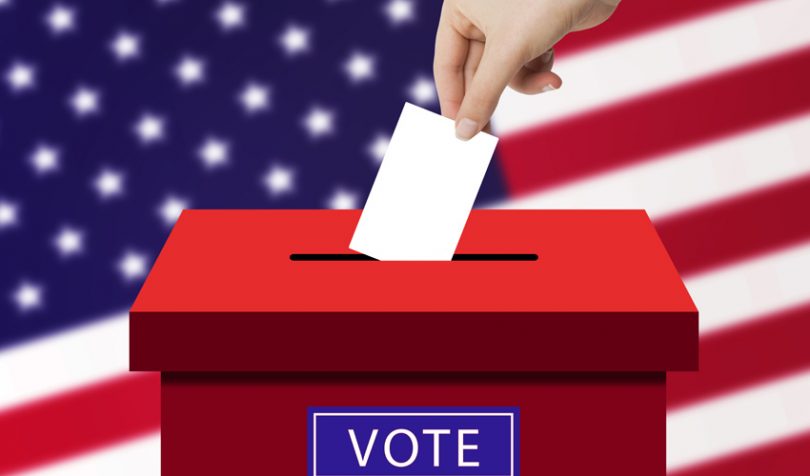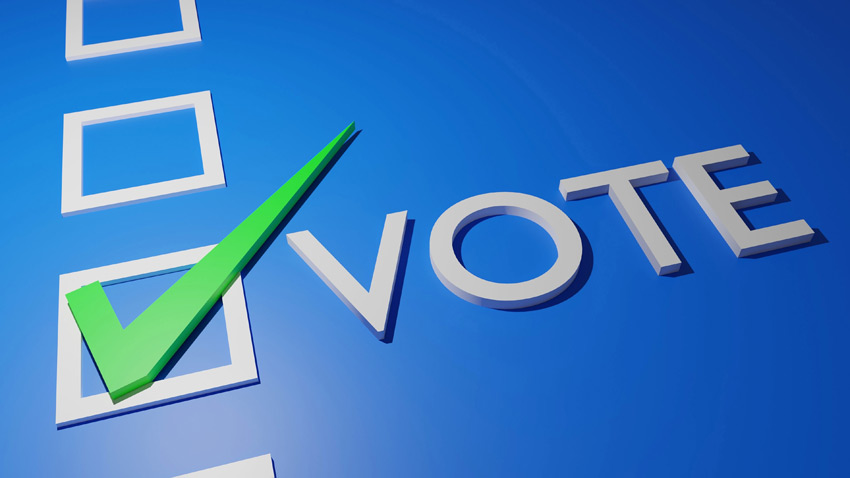The United States Postal Service (USPS) applied for a patent for a blockchain-based voting system published by the U.S. Patent and Trademark Office on 13 August 2020. The system will aim to ensure election results have not been compromised, with blockchain able to securely track the necessary data to confirm that the electronic vote remains unaltered. Additionally, on 16 July 2020, election voting app Voatz received endorsement by Pro V&V, a certified Voting system Test Laboratory, in its compliance with voting system federal law.
Electronic voting has multiple benefits, including making it quicker and easier to vote and get results, reducing election costs, as well as a potentially increasing voter turnout. It has even been used as early as 2005, with Estonia becoming the first country to conduct general elections via the Internet. However, using blockchain-based apps for voting has both its advocates and adversaries.
On the one hand, blockchain could help those who are not able to vote in person, as discussed by India’s Election Commission on the subject of geographical voting issues. On the other hand, while data within the blockchain itself is very hard to alter, voting apps could be exposed to many vulnerabilities, meaning voter privacy and security cannot necessarily be guaranteed.
In July, residents of Moscow and Nizhny Novgorod in Russia had the opportunity to vote electronically on a constitutional change. The web portal for the remote voting ended up crashing, with the Russian press subsequently reporting that voter details had been stolen.
The context of the USPS blockchain patent
The USPS has struggled financially for over a decade. According to the White House, it has incurred $65 billion of cumulative losses since the 2008 financial crisis. With the pandemic in full swing and mail volume decreasing by over 30%, significant concerns over voting via mail have been raised. President Trump is opposed to voting via mail, and this April called mail ballots ‘a very dangerous thing,’ and ‘fraudulent in many cases’, and has repeatedly opposed financial aid for the USPS. However, on 22 August 2020, the Democratic House successfully passed a bill that will provide the USPS with $25 billion and prevents further cutbacks.
Financial aid is vital for the success of the USPS’s voting system, as voters will need the mail to access their code.
In its reasoning for the patent, the USPS recognizes that not all voters can go to a polling station to vote and that electronic voting requires a secure voting system. This is particularly important during the COVID-19 pandemic, as polling stations may become a hot spot of virus transmission when voters congregate in one area. Many voters, particularly the elderly, will not want to go to the polling stations, in which case mail or electronic voting is far more desirable.
How the blockchain app might work starts with the registered voter receiving a ‘computer readable code in the mail.’ They must then confirm their identity and their ballot selection. To protect and ensure voter anonymity, the system separates identification and votes, storing the votes on a blockchain using distributed ledger technology. The system will additionally allow for individuals to register to vote, show them their registered elections, their vote, and will also allow them to check the status of their vote.
Meanwhile, Voatz has a blockchain application that’s already in use.
Voatz
During a five-month period, Pro V&V tested Voatz’s blockchain voting system and found it compliant with the U.S. Election Assistance Commission 2015 Voluntary Voting System Guidelines.
The endorsement of Pro V&V is a welcome change for Voatz. In February this year, MIT researchers released a report identifying multiple security vulnerabilities in the Voatz app, which would allow ‘adversaries to alter, stop, or expose a user’s vote.’ Voatz rejected these allegations, claiming the MIT researchers had reverse-engineered an older version of the app, which allegedly was ’27 versions old.’ Voatz claims its platform has been used in more than 67 elections. This includes a virtual convention for the Arizona State Republican Party in May, and Utah’s Republican Party’s Convention the previous month.
In terms of how it works, firstly, if the jurisdiction allows for mobile voting, voters must request to have their ballot received via smartphone. The voter must download the Voatz app, create an account with a mobile number and email, and then create a security pin. There is then a three-step process for identity verification, which, when completed will be ‘paired’ to the phone’s ‘biometrics’ or pin.
After that, any personally identifiable information gets deleted. Once the app verifies a voter as registered, the voter will receive the ballot. The voter then submits their choice using their phone’s biometrics or pin. Lastly, the app sends the voter an ‘anonymized receipt’ so they can verify their vote. The jurisdiction in which the voter is registered will use this receipt for post-election auditing.
Despite security concerns, this win for Voatz has huge implications for the democratic process. Without the need for mail, blockchain can enable to continue to vote despite the pandemic and other voting restrictions. With the USPS financial struggles and increasing concern over the integrity of voting in the U.S., blockchain-based apps may very well become the next evolutionary step in electronic voting. And doubtless, fodder for many conspiracy theories.






